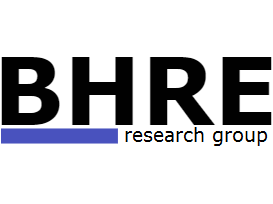Transparency and Due Diligene
Our work on Transparency, Due Diligence and Human Rights in Supply Chains focuses both on scholarship, policy and practical implementation.
Academic work: we have explored the development of due diligence as a normative standard; the short comings of transparency regulation to address human rights violations in global supply chains, including the UK Modern Slavery Act (2015); how to articulate transparency from a human rights perspective (The Right to Know); developing the concept of worker-driven monitoring and the impact of due diligence on rights-holders, including workers and small farmers.
Policy work: we have advised the European Parliament on legal options for an EU Directive on due diligene and analysing the EU Commission Draft Directive on Sustainble Due Diligence from a human rights-perspective. We also produce policy relevant guidance and Research Reports for UK public sector buyers on their obligations under the UK Modern Slavery Act and produced the OSCE Guidance on Combatting Human Trafficking in OSCE Procurement and trained both procurement and programatic staff on its implementation.
Implementation work: We have been at the forefront of international practice on responsible procurement of electronics through our work with Electronics Watch. Opi Outhwaite and Olga Martin-Ortega were part of the original Advisory Group which led to the creation of this leading organisation. Olga has been a member of the Board of Trustees of Electronics Watch since its inception until 2022 and is now it Senior Advirsor on Remediation in Supply Chains. Olga drafted Electronics Watch first Contract Clauses and contributed to its v.2 and led the Transparency Working Group of Good Electronics. She has also acted as a technical advisor to the Green Electronics Council guide on public procurement and has participated in the HP Living Progress discussions. Our current projects focuse on the definition of transparency and due diligence applied specifically to the electronics supply chain, how to develop effective monitoring frameworks and procedures to assess, prevent, mitigate and remedy human rights violations and place workers at the heart through worker-driven processes, as well as involve public buyers in this challenge when they procure electronics goods.
Worker-Driven Remedy
Effective remediation for human and labour rights violations in supply chains remains underexplored and deficient in practice. As part of this project, since early 2022, Olga Martin-Ortega and Martina Trusgnach are working with Electronics Watch to design and implement a framework for worker-driven remedy as Senior Advisor and Advisor for Remediation in Global Supply Chains.
Our framework: The development of a Framework for Worker-Driven Remedy is based on a series of essential elements which we have defined in the Remedy for Human Rights in Global Supply Chains: Esential Elements. BHRE Research Series. Policy Paper no. 7, July 2022, by Martina Trusgnach and Olga Martin-Ortega.
The Principles: Read the Principles on Worker-Driven Remedy here.
Consultations: Electronics Watch and BHRE are consulting with stakeholders on the Framework to understand the needs and perspectives of those involved in its implemenation, in particular, workers and their representatives, who must be at the heart of its definition, development and articulation on the ground and public buyers, who hold significant leverage over how violations of human rights should be address in their supply chains.
Workers’ consultations: Our online (May 2022) and in person (November 2022, Kuala Lumpur) consultations have brought the voices of those impacted by abusive supply chain dynamics at the heart of our Framework. These consultations are co-organised with Tenanganita, IndustriALL and Unison.
Public sector consultations: Co-organised with the Danish Institute of Human Rights, this in person consultation and training for public procurement practitioners and sustainability professionals in public institutions (Copenhagen, October 2022) aimed to develop a practical approach to capacitate them to ensure workers in the supply chains of their organisations have access to remedy as well as share lessons and good practice between public procurement practitionersthat have some experience in the provision of remedy.

